As we all know the Steam Machines didn't go anywhere and Valve have clearly learned a lot from it, as they spoke about in a recent video from IGN (as IGN continue to have the exclusives on this).
Valve are no stranger to hardware at this point of course. They didn't just do the failed Steam Machines but also produced the Steam Link, Steam Controller, worked with HTC for the original Vive and they also have their Valve Index VR headset too. By now, they have hopefully enough experience to know exactly what they need to make a success out of the Steam Deck and so far everything is looking rather positive on that.
Designer Greg Coomer actually mentioned how "we actually did start out by working with other companies and seeing what we could make happen with partnerships, but it became clear we started prototyping and more and more we just started creating devices to solve problems for customers ourselves and really the Steam Deck feels like the culmination of a lot of that earlier work". Coomer goes on to directly mention their earlier stuff like the Steam Machines, Steam Link and also the Steam Controller.
Scott Dalton, another Valve designer, also mentioned how early prototypes of the Steam Controller had a screen too and they wanted it to be programmable, and they thought about having Steam Link hardware with a controller but the technology at the time just wasn't good enough and they faced lots of hurdles with it and they continued prototyping and talking about it for some time. So the Steam Deck really is a device they've had in mind for years.
Proton was mentioned too with Designer Lawrence Yang mentioning how it was "really important for us to be able to talk directly to developers, and say 'hey look the Steam Deck runs your game you don't have to port'" with Coomer following up to mention how it's been a "chicken and egg problem with the Steam Machine of the content being there, we were trying to get games on Linux but then you had to have this crucial amount to get over this hump but then without the user base and you get into this bad cycle. That led us down this path of Proton now there's all these games that run so you've crossed over that hump and you're on the good side of it".
You can see the video below:
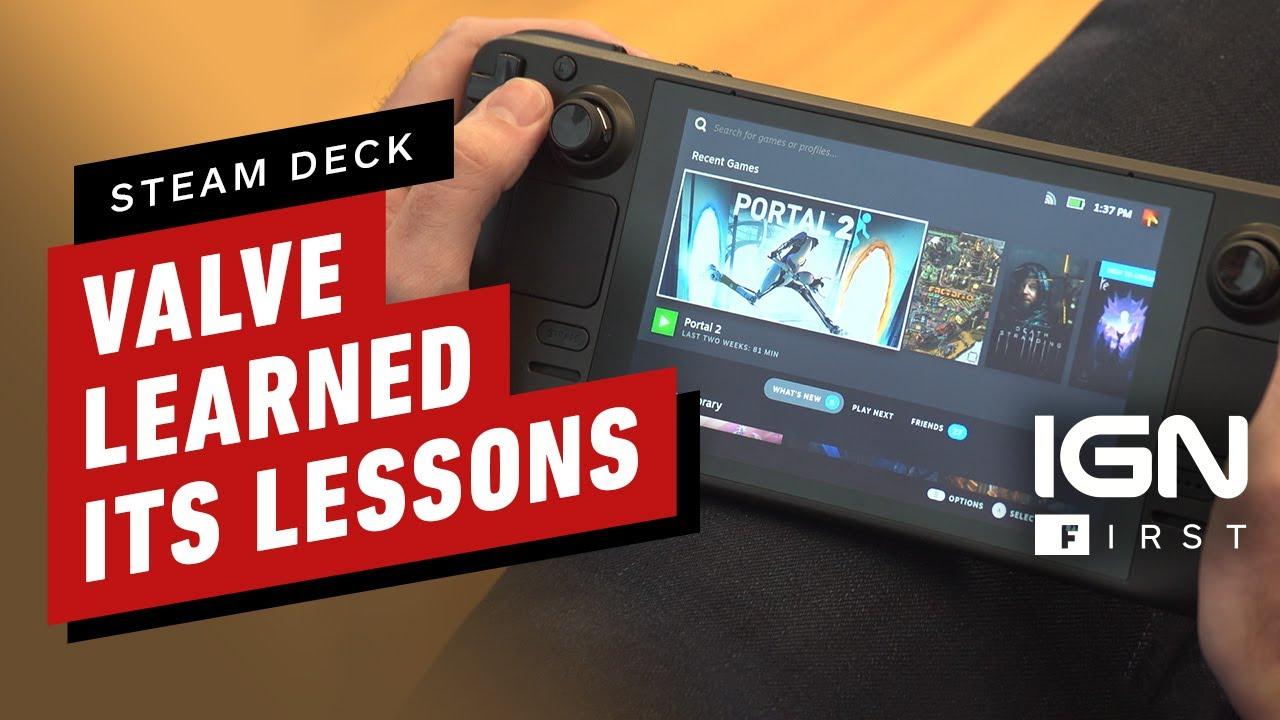
Direct Link
Isn't the Steam Deck also just a Steam Machine? It's a PC with SteamOS preinstalled.
Yes, but actually no.
Steam Machines all had Intel IGP graphics. They simply were not suitable for gaming, from a hardware perspective.
Isn't the Steam Deck also just a Steam Machine? It's a PC with SteamOS preinstalled.
Yes, but actually no.
Steam Machines all had Intel IGP graphics. They simply were not suitable for gaming, from a hardware perspective.
No, they didn't? There were plenty of different configurations.
https://venturebeat.com/2015/03/06/steam-machine-prices-range-from-460-to-5000/
Here is some games with issues to illustrate my point. MESA/RADV, no idea about nvidia.
ELEX (requires workaround or gfx glitching)
Risen3 (same as above but crashes randomly often)
Max Payne 3 (tessellation bugged on RADV)
Operation Flashpoint 2 + Red River (needs gfw fix, but menu ctd, doesn't render).
NMS (people complain about random issues all the time)
The list goes on, basically Valve needs to address some backward compatibility with older games via proton more IMO.
Then we have all the anticheat stuff on top... for the most part broken with proton.
In my case with wine (no proton) and nvidia geforce gtx 1050:
elex runs ok - risen 3 (32bits) runs ok - max payne 3 (no test for now)
In my case, with Proton (with the latest version at the time of play) and nVidia 1070, I can confirm that Elex was good and Risen 3 too.
My impression when looking for compatibility on protonDB was that, most of the time, the issues were occuring on AMD GPU ; I don't know how it is currently, as I have stopped buying games most games without a native version
(I still reserve myself the right to buy some games that I really want to play, such as Cyberpunk, Horizon Zero Dawn, and Bloodlines 2, because I am pretty sure they will never see a native version anyway).
So, a better Steam Machine? :)
That's rather like looking at the PS3 and then calling PS Vita "a smaller PS3." On the surface, it might not be wrong, but there's a lot of dynamics that change how one should view it as.
The Steam Machine was basically just a pre-build made by partners, running a limited Linux distro with small amount of games. At a rather unjustified premium at that.
Steam Deck is closer to a tablet with built in controller, produced by Valve themselves with a decent yet uniform spec, running a Linux distro that makes more sense (hopefully, at least, judging by its Arch base and Plasma DE), that can run the majority of games (specifically mentioning that they're targeting anti-cheat now and 800p30fps minimum performance with decent efficiency).
The Steam Machine was a garbage overpriced prebuilt that does nothing. The Steam Deck is a real alternative to Switch and has better flexibility being a tablet/mini-PC running a Linux distro. You're not going to do work on it, but it's a good multimedia device on top of being a more flexible version of a device (Switch) that's been proven to work in concept.
The only question is how well can they market it. Or, well, judging by pre-orders, how much can they actually make because they're competing with everyone for those chips.
Last edited by fenglengshun on 3 Aug 2021 at 6:08 pm UTC
There is no mention of UI polish, availability of extra services like video streaming, or failures of marketing. I hope that's just because these are low-level-stuff kind of guys and not because none of those lessons were learned.
Overall this is not a bad talk. One thing I notice though is that the "lessons learned" they're talking about are all fairly low-level. I mean like hardware, enabling software like Proton and stuff like that.
There is no mention of UI polish, availability of extra services like video streaming, or failures of marketing. I hope that's just because these are low-level-stuff kind of guys and not because none of those lessons were learned.
Yet, they "claim" the different categories of developers under one roof had significant positive impact.
Like Steam, infrastructure, middleware, game devs and hardware people.
This is to be proven though, I agree.
So, a better Steam Machine? :)
That's rather like looking at the PS3 and then calling PS Vita "a smaller PS3." On the surface, it might not be wrong, but there's a lot of dynamics that change how one should view it as.
The Steam Machine was basically just a pre-build made by partners, running a limited Linux distro with small amount of games. At a rather unjustified premium at that.
Steam Deck is closer to a tablet with built in controller, produced by Valve themselves with a decent yet uniform spec, running a Linux distro that makes more sense (hopefully, at least, judging by its Arch base and Plasma DE), that can run the majority of games (specifically mentioning that they're targeting anti-cheat now and 800p30fps minimum performance with decent efficiency).
The Steam Machine was a garbage overpriced prebuilt that does nothing. The Steam Deck is a real alternative to Switch and has better flexibility being a tablet/mini-PC running a Linux distro. You're not going to do work on it, but it's a good multimedia device on top of being a more flexible version of a device (Switch) that's been proven to work in concept.
The only question is how well can they market it. Or, well, judging by pre-orders, how much can they actually make because they're competing with everyone for those chips.
Well, the definition of a Steam Machine was pretty lax.
There was the Steam Machine assembled and delivered by Valve themselves (the one I personally like to call the "real" Steam Machine, I'd love to have one of those), followed by the ones built by partners, and they all had SteamOS in common.
But then it was also the semi-official Steam Machine running Windows, sold for a while by Alienware, and when cornered by a journalist, Valve stated that any PC sold or user-built booting (regardless of the OS) straight in the Steam interface is a Steam Machine, much to my chagrin since I thought/considered SteamOS to be mandatory.
So the SM definition was very diluted and sometimes contradictory stated. I still believe that the only real Steam Machine was the one delivered by Valve to testers, the rest meh, some good, some bad, but in the end just a market attempt to ride the wave raised by Valve.
I guess the Deck can be called a successor of the Steam Machines, an improved version of it, or an evolutionary step, take your pick. But I think the main reason we and Valve don't want/like to call the Deck a Steam Machine is because Steam Machines are strongly associated with failure, and we don't want that stench anywhere close.
There was the Steam Machine assembled and delivered by Valve themselves (the one I personally like to call the "real" Steam Machine, I'd love to have one of those)
I can't remember that at all, do you have a link for me?
I could only find this one for now:There was the Steam Machine assembled and delivered by Valve themselves (the one I personally like to call the "real" Steam Machine, I'd love to have one of those)
I can't remember that at all, do you have a link for me?
https://www.youtube.com/watch?v=AYAe7RdK1Q8&ab_channel=OolenGamingOmniverse
It was a big deal at the time, Valve sent them in a custom wooden box with all kind of goodies.
Don't know if this unboxing has everything, I'll search for more later.
Edit:
Other ones:
https://www.youtube.com/watch?v=mvzlztBLqpU&ab_channel=BrandonBeans
https://www.youtube.com/watch?v=Z3xvNmEWztA&ab_channel=SaharaDrac
https://www.youtube.com/watch?v=LhgQsI6bUWU&ab_channel=EvanMcLaughlin
Last edited by dubigrasu on 3 Aug 2021 at 8:06 pm UTC
OMG. How time flies.
Linus Tech Tips have gotten a hands on with the deck: [https://www.youtube.com/watch?v=SElZABp5M3U](https://www.youtube.com/watch?v=SElZABp5M3U)He seems to quite like it.
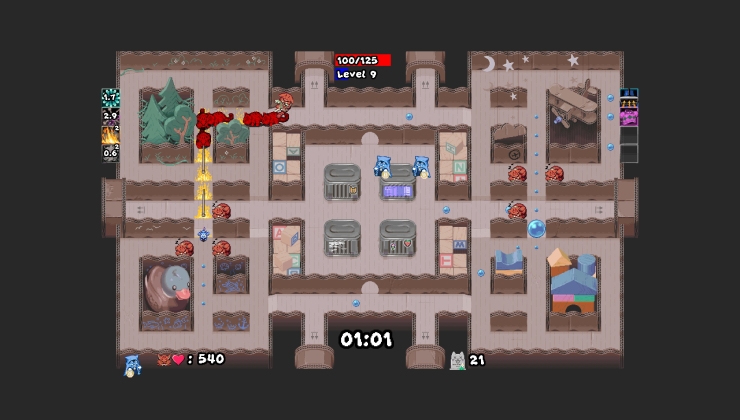
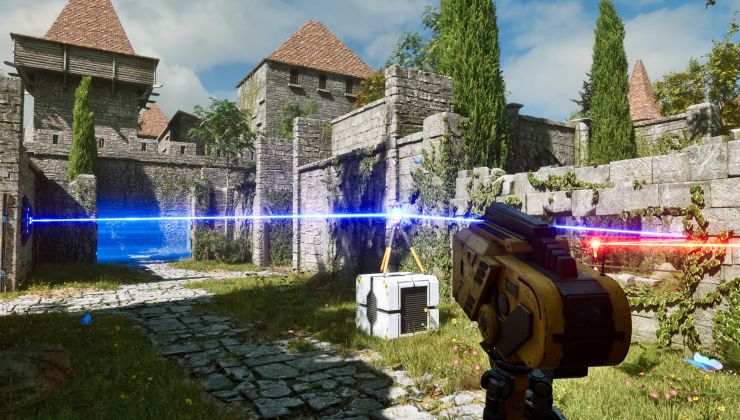
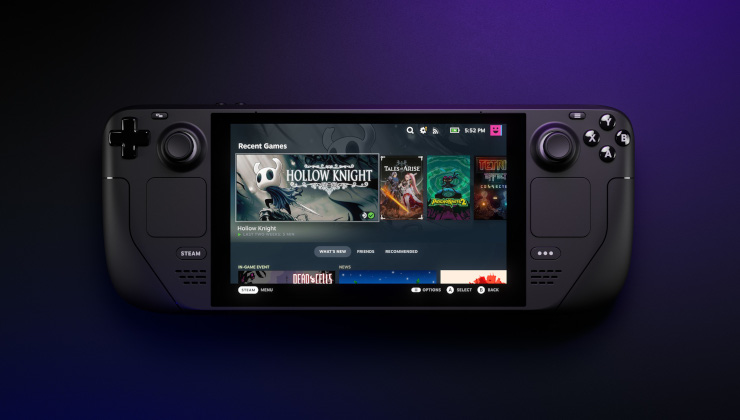
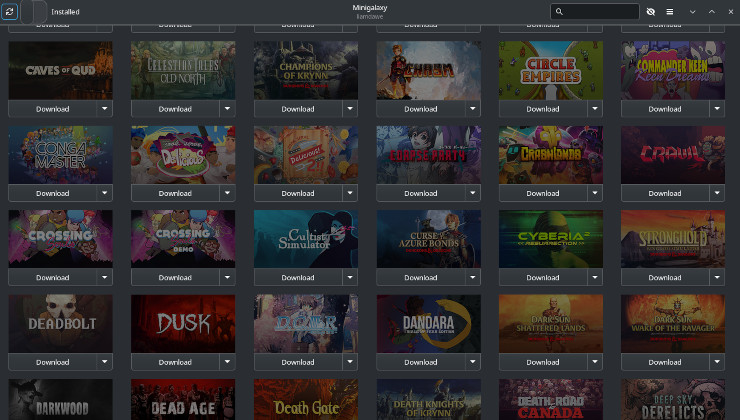






 How to set, change and reset your SteamOS / Steam Deck desktop sudo password
How to set, change and reset your SteamOS / Steam Deck desktop sudo password How to set up Decky Loader on Steam Deck / SteamOS for easy plugins
How to set up Decky Loader on Steam Deck / SteamOS for easy plugins
See more from me